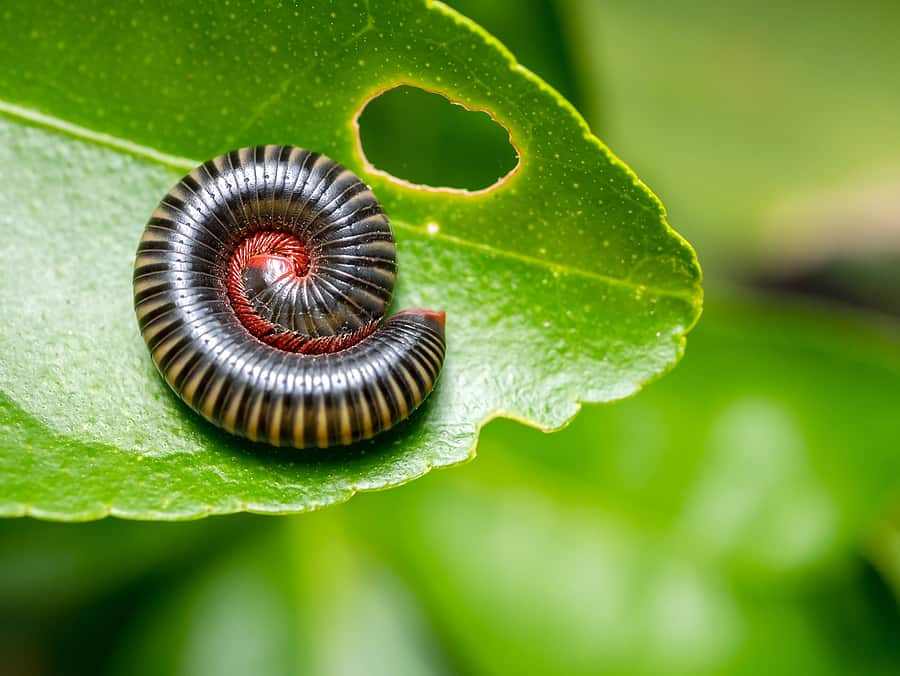READY TO GET STARTED?
REQUEST A FREE ESTIMATE
Fill out the form below or call (888) 466-7849 for a free, no-obligation estimate.

Millipedes are common occasional pests that are found throughout the United States. While they typically live outdoors under leaves, mulch, compost, rocks, etc, they will come indoors for two reasons: in search of water during droughts or in search of shelter after heavy rains. They are often found infesting basements, garages, and crawlspaces. If you spot millipedes in your house, it is highly likely that they are breeding somewhere in your lawn.
Millipedes are decomposers meaning their diet primarily consists of damp, decaying plant material. Because of this, they are quite beneficial to have in your garden. While they are harmless to humans, millipedes can become a nuisance if they infest your home in large numbers. Prevention is the best method of millipede control. Here are some tips you need to know about how to keep millipedes away from your home.
If there is nowhere for millipedes to hide or breed then they can’t infest your home. Prevent millipedes by removing mulch, leaves, grass clippings, boards, woodpiles, rocks, boxes, etc. from your yard, especially if they are near foundations. If you are unable to remove them completely, try to elevate them off the ground. Try not to overmulch your flowerbeds.
What attracts millipedes is moisture, especially in crawlspaces and around foundations. Make sure your gutters are clear and properly functioning. Consider installing gutter guards to help prevent clogs. Make sure downspouts are pointed away from foundations and use splash blocks to keep water away from foundation walls. Consider installing tiles or drains or sloping the ground so water drains away from foundations. Repair any leaky pipes, appliances, or faucets. Reduce the humidity in your crawlspace and basement with dehumidifiers, sump pumps, or soil covers.
Millipedes thrive in the moist layer of thatch that can accumulate on unkempt lawns. Keep your grass mowed short and dethatch the lawn as this will make it less appealing to millipedes. Try not to overwater your lawn. Don’t water your lawn at night as there is no sun to help evaporate the moisture.
Millipedes can enter your home through cracks in the exterior of your home or foundation. Seal any cracks or openings in the outside foundation. Use thresholds or door sweeps on all exterior doors. Caulk the outer edges of the thresholds. Seal any expansion joints where sunrooms, patios, and sidewalks are next to foundations. Seal any expansion joints or gaps at the bottom of basement walls.
Millipedes can only survive for a few days once they get inside your home. The conditions indoors are too dry for them to be able to live long periods of time. The infestation will be short lived and eventually they will die off. Once this happens, you can sweep them up with a broom or vacuum them up.
While millipedes don’t cause damage to homes or to the health of humans, they can become quite a nuisance when they invade in large numbers. If you have a problem with millipedes or any other pests, contact a professional pest control company who can provide you with the most up-to-date prevention and treatment techniques.
Watch out for the Stinging Pests!